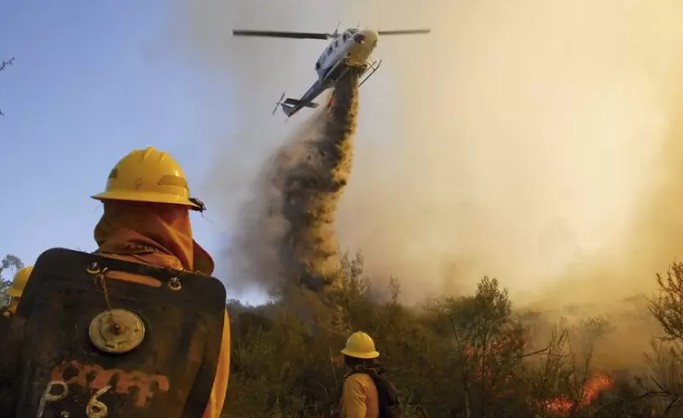By Simón Berti Sanhueza, President of the College of Forestry Engineers A.G.; and Julio Torres Cuadros, Forestry Engineer. Member of Futuro Madera, Executive Secretary of the College of Forestry Engineers of Chile.
The Forest Fire Prevention and Mitigation Bill is advancing at a forced pace in the Senate's Agriculture Committee. Unfortunately, achieving a well-crafted legal text seems increasingly unlikely. The repeated observations from the forestry sector have been ignored and, worse, caricatured by an authority that believes forest landowners are the root cause of all evils stemming from fires. This diagnosis has remained unnuanced throughout the discussion.
Instead of building a public-private strategy for preventing fire occurrences—applying nationwide what has already been successfully implemented at the community level through local prevention support initiatives (such as the Community Prevention Network and Prepared Communities)—the chosen strategy relies solely on imposing new land-use regulations on small and medium forest and agricultural landowners, at private expense.
The implications of this approach have not been fully understood by the senators debating the bill, as they have repeatedly linked the new mandatory measures to preventing fire occurrences during the legislative process. However, the reality is that fire prevention is not part of this bill. With imminent approval in the Senate just days away, this confusion is inexcusable. We must emphasize that the bill does not include mandatory measures for preventing fire occurrences.
In one of the latest chapters highlighting the profound implications of this legislation, Senator Carmen Gloria Aravena questioned the authority being granted to the National Forestry Service to regulate via decree which activities private entities can or cannot carry out in urban-forest interface areas. The senator used the example of a lumberyard that, under the future regulation, might cease operations for being a threat to the population due to the flammability of its merchandise (wood). Under the new regulation, she argued, private businesses could be forced to transition to another productive activity.
Let’s fully grasp the implications raised by the senator. Because some people cause fires through negligence or intent, certain productive activities in interface zones will have to relocate, transition, or shut down entirely. In other words, because some individuals might burn trash in ravines near their homes, weld or cut metal—creating sparks during heatwaves—or even barbecue in areas surrounded by dry grass, some businesses will have to close or change. It won’t matter if those businesses, like the senator’s lumberyard example, were community-driven enterprises born from local effort or multi-generational family businesses providing jobs and paying taxes. The bill makes them double victims: first, victims of a fire they didn’t cause, and second, victims of a regulation that criminalizes them. The senator’s concern is undoubtedly legitimate.
The authority defends the bill’s approach by stating that the measure is not retroactive and that such activities wouldn’t have to transition or close—they would only need to adopt prevention measures. But at what cost? How many won’t be able to afford these "prevention measures"? How many small landowners will be forced to surrender 30% or 40% of their land for firebreaks to mitigate the impact of a crime (starting a fire) they are not responsible for? It doesn’t seem that the authorities, whether in the Executive or Legislative branches, are properly weighing the severity of the proposals they are pushing to enact into law.
Still, we must see the glass half full and appreciate that the authority has agreed to review the fine amounts included in the bill. Let’s not forget: these fines will apply to landowners who fail to implement prevention measures, not to those who start fires. The minister acknowledged that a fine for a severe violation—nearly 650 million pesos (10,000 UTM)—could be absurd. Finally, some common sense. Will they consider lowering it to 300 million?
This is the bill the authority is pushing. If passed, it will likely join the group of laws that, shortly after enactment, reveal their disastrous impacts on the very sector they aim to regulate. Subsequent excuses and admissions of error will be useless. Are the senators aware of their responsibility, or will they—once the "problems arising from the solutions" become evident—shift blame to the authorities instead of taking accountability for approving such a flawed bill?







Comentarios (0)
No hay comentarios aún. ¡Sé el primero en comentar!
Deja un comentario